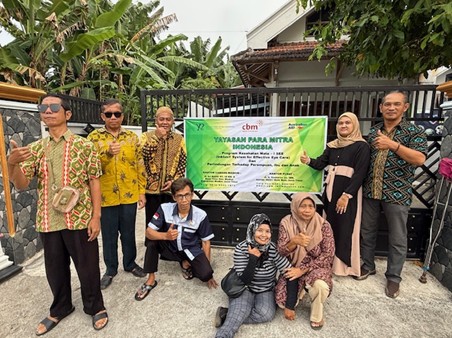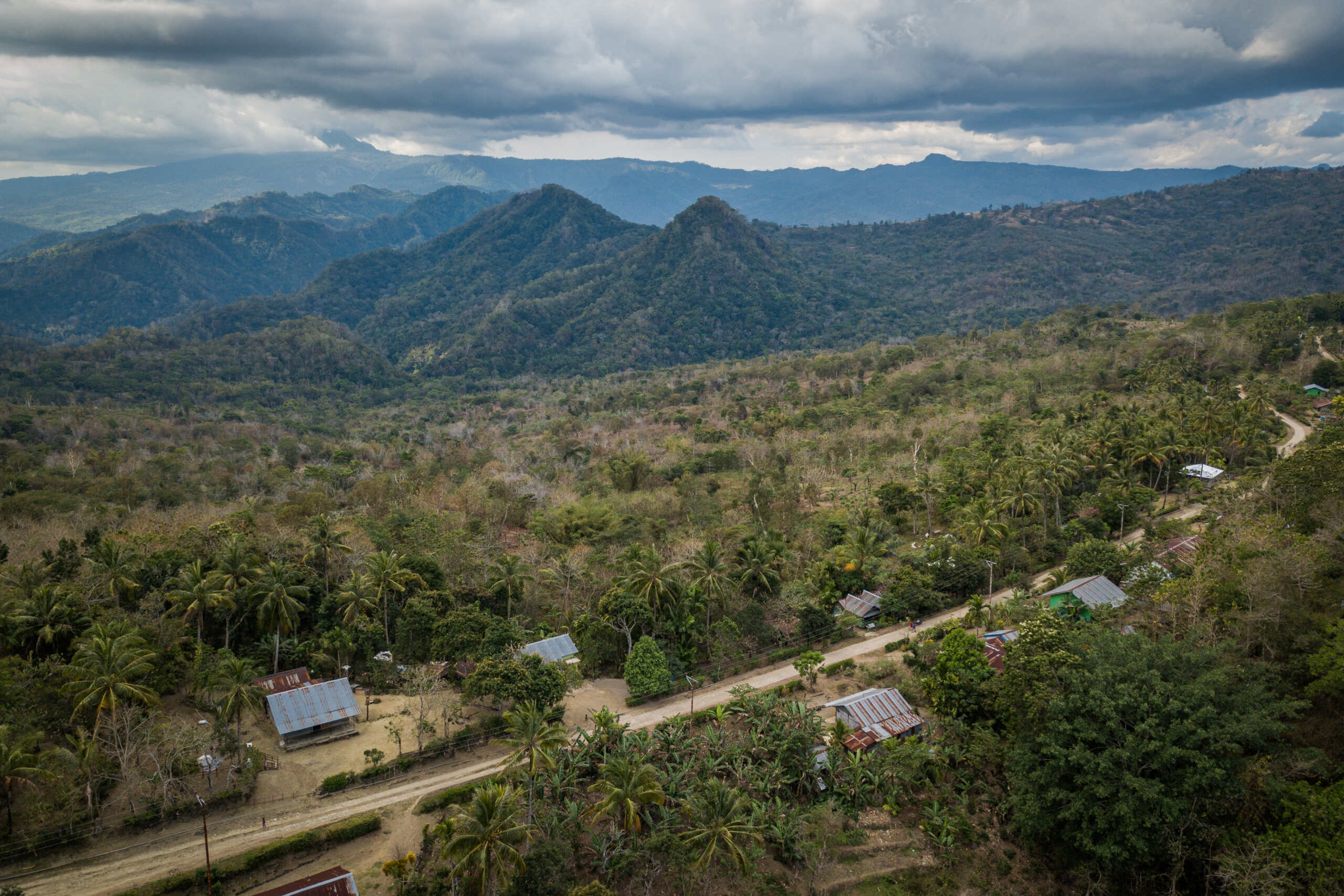Seeing change: How inclusive eye care in Indonesia is empowering communities
Mental-health, Stories | October 9, 2025
In Madiun, East Java, a project funded by CBM Australia is transforming lives, not only by helping thousands of people see more clearly, but by strengthening the leadership and voice of people with disabilities so they can lead the way.
The “Inclusive System for Effective Eye Care” project aims to improve eye health services and community support for people with vision impairments. Since it began, over 2,900 health volunteers have been trained to screen people for eye conditions, and more than 86,545 people have been screened. Many have been referred for life-changing treatments like cataract surgery or support for low vision. For most, it has been their first time accessing eye health services highlighting the importance of strengthening the health system at the community level.
But the project is about more than just eye care. It’s about inclusion.
From the start, CBM Australia worked alongside local people with disabilities to establish three formal Organisation of Persons with Disabilities (OPD). Before this, they were an informal group of people with no formal role. With support and training, they became legally recognised groups with greater authority and capacity to influence local systems and decision-making. Being formally recognised has brought a sense of confidence and greater influence in the community.

By investing in training and support, OPD members have gained skills in disability rights, advocacy, and eye health. Their role now goes far beyond simply participating in community health activities, they have become leaders, helping shape community health initiatives and driving inclusion.
OPD members also play a central role in the project’s implementation. They help train health volunteers and join monthly health checks in rural areas reaching people who otherwise would find it difficult to access clinics. They also serve as visible advocates for inclusive health. This involvement has made a significant difference not only for those receiving care, but for the OPD members themselves.
“We are now more empowered and will continue to focus on building our organisation and participating in community health activities in the future,” shared one OPD member.
Involvement of OPD members has helped shift how people with disabilities are seen, from passive recipients of aid to active leaders in their communities.
The project also supports children. Teachers have been trained to spot vision conditions in students, and children with sight impairments are now getting glasses so they can learn better at school.
This work reflects CBM Australia’s commitment to the Global Disability Summit goals, which include supporting inclusive health systems and empowering OPDs. It shows how thoughtful partnerships can lead to lasting change, by listening to local voices and building on their strengths.
For Australians, this story is a reminder that our support can help create fairer, healthier communities around the world. It’s not just about ‘fixing problems’, it’s about helping people take the lead in solving them.
CBM Australia acknowledges the support of the Australian Government through the Australian NGO Cooperation Program (ANCP).
https://www.cbm.org.au/stories/seeing-change-how-inclusive-eye-care-in-indonesia-is-empowering-communities
Related Stories

Week 3 – Lent series 2026
This week, we’re reflecting with our colleague Christian, Supporter Relationship Specialist at CBM Australia, who turns to John 13:34–35 (NIV): “A new command I give...

Week 2 – Lent series 2026
As we continue our Lent journey, we’re grateful to share a heartfelt reflection from CBM Australia’s Head of Program Impact Operations, Kieran Cummins, who...

Building inclusive, climate resilient communities in Bangladesh
Highlights from DFAT Post’s visit In January 2026, representatives from the Australian High Commission in...
